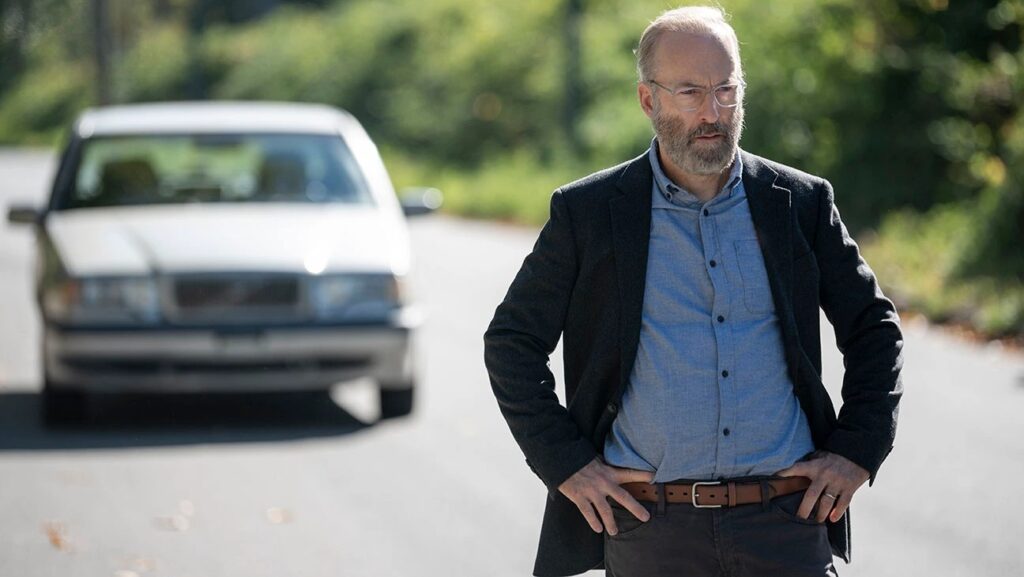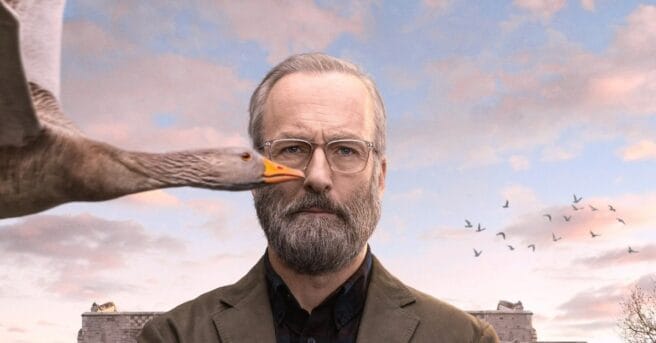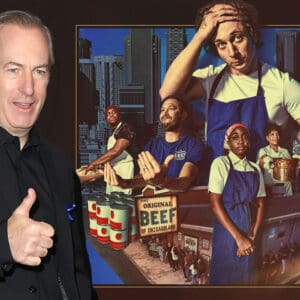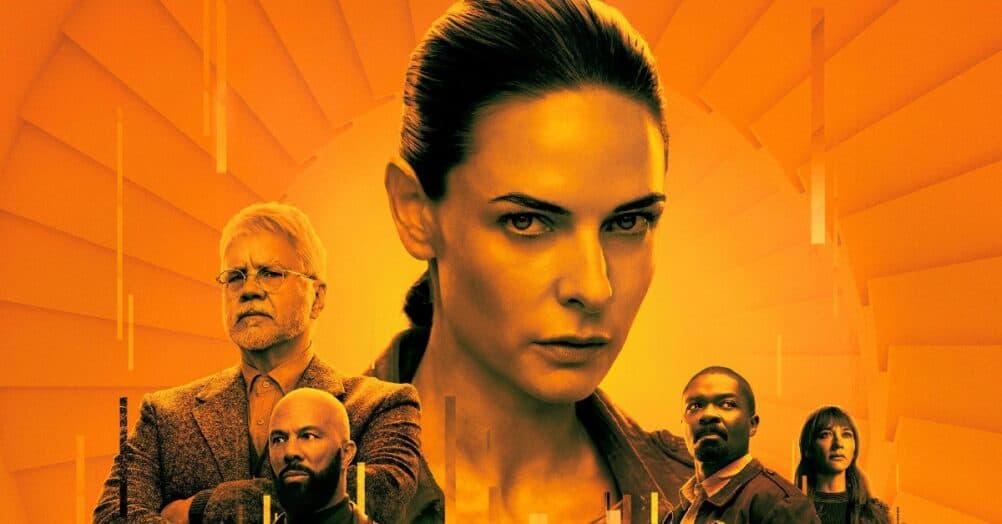Last Updated on April 4, 2023
Plot: Lucky Hank is an eight-episode mid-life crisis tale set at Railton College. Told in the first person by William Henry Devereaux, Jr., the unlikely chairman of the English department in a badly underfunded college in the Pennsylvania rust belt.
Review: Bob Odenkirk is one hell of an actor. The accomplished comedian joined Breaking Bad as Saul Goodman in what many of us assumed was a comic relief role before turning in a bravura performance as the lawyer in his spin-off, Better Call Saul. While earning acclaim in that role, Odenkirk became an unexpected action hero in Nobody, proving his versatility across genres. Now, Odenkirk blends his dramatic and comedic chops for a new AMC series, Lucky Hank. Based on the Richard Russo novel Straight Man, Lucky Hank is a biting and satirical comedy that is equally serious and funny, with a substantial leading role for Odenkirk as the title character. A far different character than he has played in recent years, Bob Odenkirk is surely going to nab another round of awards nominations when this series premieres on AMC and AMC+.
The first episodes of Lucky Hank, which premiered at SXSW this weekend, immediately distinguish this series from Breaking Bad and Better Call Saul. Set at a small liberal arts college, Lucky Hank is the story of tenured professor and chair of the English department, William Henry Deveraux, Jr. When we first meet Hank, he stares across a pond on campus before listening to a listless and poorly written story by one of his students. When the student calls out Hank for not participating in the class or teaching them anything, Hank rants about the mediocrity of the school and its students. The school paper published the recording of his diatribe, forcing Hank to face potential disciplinary action. Instead of being upset, Hank is relieved as he comes to terms with his life and where it is (or is not) headed. The episodes also introduce Hank’s wife, Lilly (Mireille Enos), and his fellow professors at Railton College.
In many ways, Lucky Hank owes a debt to The Office. Lucky Hank co-creator Paul Lieberstein was a writer on the long-running NBC sitcom and played Toby Flenderson. He brings the awkward dynamic of workplace politics to this series. From the outset, Lucky Hank feels unlike any of Bob Odenkirk’s prior work and reminded me quite a bit of Bryan Cranston’s early episodes of Breaking Bad, playing Walter White as a beleaguered teacher struggling with a crossroads in his life. Here, Hank is not dying of cancer but instead contending with his inability to write a second novel after decades of writer’s block. Watching those around him succeed and living in the specter of his famous and far more successful absentee father, Hank suffers no fools. In each of the two episodes made available for this review, Hank does not hold back with his critical opinions, no matter how much it rankles his coworkers, students, or family. And therein lies this series’ primary conflict.

While Odenkirk’s prior work is likely to draw in viewers, they should be prepared for a series that is very different from what they may be expecting. Lucky Hank dives deep into the daily life of a college professor, dealing with difficult students like Bartow Williams-Stevens (Jackson Kelly), contentious colleagues like poet Grace DuBois (Suzanne Cryer), and his wayward daughter Julie (Olivia Scott Welch). The Office alum Oscar Nunez plays Hank’s boss, and Brian Huskey portrays a fictionalized version of acclaimed author George Saunders. The interplay between all the characters is subdued but carries a heavy dose of satire as the politics on campus shift into a surreal power struggle that is darkly hilarious. Through it all, Odenkirk plays Hank as a relatable and likable character, even when he is a dick. Lilly balanced Hank beautifully, with Mireille Enos giving a strong performance that is quite different from any role she has played in recent memory.
Lieberstein co-created Lucky Hank with Aaron Zelman, best known for his dramatic writing on The Killing, Damages, and Law & Order. The two writers transform Richard Russo’s novel Straight Man enough to warrant the title change. Lucky Hank shifts some of the narratives of the novel. He expands on many characters while retaining the narration by Hank and keeping it centered on his story while enhancing the supporting players significantly. Peter Farrelly directed the premiere episode and brings the same blend of comedy and drama he brought to The Greatest Beer Run Ever and the Oscar-winning Green Book. Unlike either of those films, Lucky Hank is a slower-paced story, developing the simmering mental breakdown inevitably coming for Hank. The first two episodes alone present a man on the verge, only to be brought back to sanity by those around him. But, with six more episodes, I do not think Hank’s explosion will be avoidable.
Lucky Hank is a marquee series that AMC has become known for, featuring another bravura performance from Bob Odenkirk. A complete shift from his last performance for the network, Lucky Hank is exactly the type of role that Odenkirk is perfectly suited for and allows him to be as funny as he is dramatic while creating a unique story. Lucky Hank is an ode to teachers and writers that will ring very true for anyone in those vocations but also makes for a very intriguing series for anyone who isn’t. Whatever your reasons for checking this series out, stick with it through at least the first two episodes so that you can appreciate the simmering and volatile undercurrent of these characters. This is as funny of a series as Community, but with a totally different sense of humor. Lucky Hank is difficult to describe but very easy to enjoy.
Lucky Hank premieres on March 19th on AMC.





















Follow the JOBLO MOVIE NETWORK
Follow us on YOUTUBE
Follow ARROW IN THE HEAD
Follow AITH on YOUTUBE